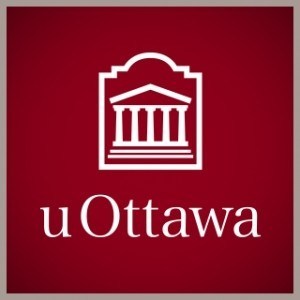Photos of university / #uottawa
The Bachelor of Arts in Communication at the University of Ottawa offers students a comprehensive understanding of the fundamental principles and diverse branches of communication theories and practices. Designed for individuals interested in exploring various aspects of human interaction, media, and information dissemination, this program emphasizes critical thinking, analytical skills, and innovative approaches to communication challenges in contemporary society. Students engage with core topics such as media studies, intercultural communication, journalism, public relations, digital communication, and media production, gaining both theoretical knowledge and practical experience. The program's interdisciplinary curriculum prepares graduates for careers across a wide range of fields including media organizations, corporate communication, public affairs, advertising, and digital content creation. Throughout their studies, students have opportunities to develop practical skills through internships, workshops, and project-based learning, which enhance their readiness for the dynamic communication industry. The program also encourages the development of research competencies and a nuanced understanding of communication in social, political, and technological contexts. With dedicated faculty members who are experts in their respective fields, students receive personalized guidance and mentorship. The university fosters an innovative learning environment by integrating new media technologies and digital tools into coursework. Graduates of the Bachelor of Arts in Communication are equipped to analyze, create, and evaluate communication strategies in a multicultural and globalized world, making them valuable professionals in many sectors. The program prepares students for advanced studies or careers that require strong communication skills, ethical reasoning, and cultural awareness. With a strong emphasis on diversity, inclusion, and critical engagement, the Bachelor of Arts in Communication at the University of Ottawa offers a well-rounded education designed to meet the evolving needs of society and the media landscape.
- RESEARCH METHODS
- CONTEMPORARY COMMUNICATION ISSUES
- SOCIAL HISTORY OF COMMUNICATION TECHNOLOGIES
- COMMUNICATION ETHICS
- PUBLIC COMMUNICATION CAMPAIGNS: THEORIES AND APPLICATIONS
- DIVERSITY IN THE WORKPLACE : COMMUNICATION CHALLENGES
- ORGANIZATIONAL COMMUNICATION THEORIES
- THEORIES AND EFFECTS OF THE MEDIA
- HEALTH COMMUNICATION THEORIES
- COMMUNICATION MANAGEMENT
- VIRTUAL WORK TEAMS
- COMMUNICATION, GLOBALIZATION AND CHANGE
- GOVERNMENT COMMUNICATION
- RISK AND CRISIS COMMUNICATION
- KNOWLEDGE MANAGEMENT
- ADVANCED RESEARCH IN TRADITIONAL AND EMERGING MEDIA
- POLITICAL USES OF MEDIA
- CONSTRUCTION OF SOCIAL REALITY BY THE MEDIA
- NEW DIRECTIONS IN JOURNALISM
- INTERNATIONAL COMMUNICATION
- MEDIA, IDENTITY AND DIVERSITY
- SPECIAL TOPICS
- DIRECTED STUDIES IN COMMUNICATION
- SPECIAL TOPICS IN COMMUNICATION
- CO-OP WORK TERM
- RESEARCH PROPOSAL
- RESEARCH PAPER
- THEORIES IN MEDIA STUDIES
- ADVANCED THEORIES IN ORGANIZATIONAL COMMUNICATION
- SPECIAL TOPICS IN MEDIA STUDIES
- SPECIAL TOPICS IN ORGANIZATIONAL COMMUNICATION
- DOCTORAL SEMINAR
- THESIS PROPOSAL
- PHD THESIS
Requirements
- Master’s degree with thesis (or equivalent) in Communication, or in a related discipline
- Have obtained a minimum average of 75% (B+) calculated according to the standards of the FGPS
- Bilingualism (French/English)
- Application Fee:$100.00 ($CDN non-refundable)
- 2 Recommendation letter(s)
- Transcript
- Proof of proficiency in your program's language of instruction, in the case of applicants whose first language is neither English nor French
- Language proficiency test scores equivalencies:
- TOEFL 625 / IELTS Overall 7.0 - Individual 7.0 (Paper-based), TOEFL 107 / IELTS Overall 7.0 - Individual 7.0 (Internet-based), A minimum TOEFL score of 625 with a score of 5 in writing; for the IBT (Internet Based TOEFL), a score of 107
- An IELTS score (International English Language Testing System) of 7 (writing 7)
- An average score of 4.5 in listening/reading and writing score of 4.0 in the CanTEST (for English) or TESTCan (for French), administered by the University of Ottawa
- A minimum DELF (Diplôme d’Études de langue Française) or DALF (Diplôme Approfondie de langue Française) score of B1 and B2 (good)
- Letter of Intent
- CV and a statement of interest outlining career goals
Scholarships
- Full/Partial FGPS Scholarship
- Ontario Graduate Scholarships (OGS)
- Vanier Canada Graduate Scholarship
- Mitacs Globalink Fellowship
The Bachelor of Arts in Communication at the University of Ottawa offers students a comprehensive understanding of the ways in which media and communication influence society, culture, and the individual. The program provides a multidisciplinary approach, combining insights from sociology, psychology, media studies, and cultural studies to explore contemporary issues such as digital media, journalism, advertising, public relations, and intercultural communication. Students will develop critical thinking, analytical skills, and practical competencies necessary for various careers in communication industries. The curriculum includes core courses in communication theory, research methods, media history, and ethics, alongside electives that allow students to specialize in areas like political communication, health communication, or new media technologies. The program often emphasizes experiential learning through internships, projects, and collaborations with media organizations, preparing students for the professional environment. Graduates of the program are equipped to pursue careers in media production, corporate communication, government agencies, non-profit organizations, and digital content creation. The program aims to foster a nuanced understanding of the role of communication in shaping public opinion, influencing policy, and fostering intercultural dialogue. It is suitable for students interested in understanding the dynamics of communication processes and wanting to make a positive impact in media and society. The University of Ottawa supports students with modern facilities, a rich academic community, and opportunities for participation in student organizations related to media and communication. The program also encourages students to engage in research projects and participate in conferences to broaden their academic and professional perspectives. Through this program, students will be prepared to adapt to the rapidly changing media landscape and to become effective communicators across diverse platforms and audiences.



